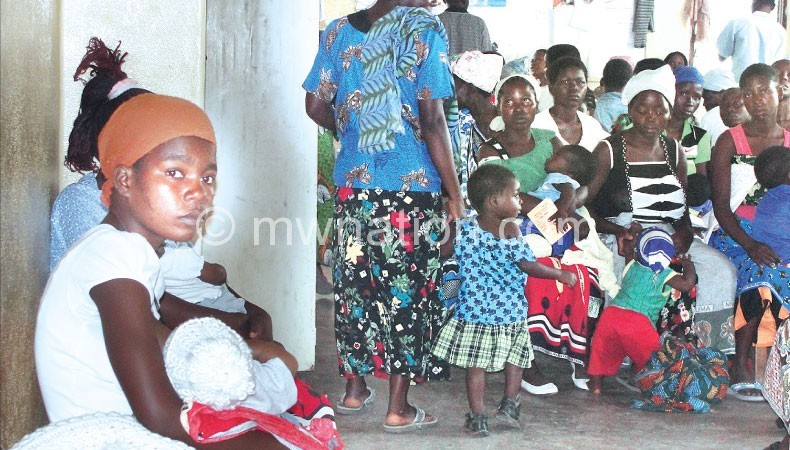Saving newborns from early deaths

Malawi, like many Third World countries, has high infant death rates. Save the Children International reports that globally, over one million babies die on their first day of life every year.
Modesta Minjesi, 31, who lives in Blantyre’s Ndirande Township, cannot hide her misery after she lost her first baby five years ago.
“When I was due to give birth, I rushed to Ndirande Health Centre where I successfully gave birth to a girl, but she was so frail and small,” she says.
Although the nurses tried to save the baby, Modesta says the baby did not survive.
She now has a two-year-old boy.
“But I still think about my first child. My boy would have been my second child,” she says.
When she got pregnant again, Modesta says she was not sure of what would happen to her child.
“I got worried when my labour started at eight months. He was born premature but thank God, here he is,” she says.
Maternal and newborn health specialist at Save the Children Malawi Lydia Chintembo says more babies born prematurely can be saved through low cost but highly effective interventions.
Chintembo notes that safe motherhood can be achieved if government, the private sector and the public pay attention to newborn babies.
She says programmes such as kangaroo mother care (KMC), management of preterm labour with antenatal corticosteroids and prevention of neonatal sepsis to avoid infections cost little but can effectively curb infant deaths.
“More newborn babies can be saved if government invests a lot in ensuring availability of low cost interventions such as resuscitation devices to help babies breathe; chlorhexidine to prevent umbilical cord infections; injectable antibiotics to treat newborn sepsis and pneumonia; and corticosteroid injections for women in preterm labour to prevent breathing problems in premature babies,” Chintembo explains.
In fact, Save the Children’s State of the World’s Mothers Report for 2013 notes that global health experts have identified the four low cost products as “priority interventions to immediately and effectively address avoidable newborn deaths.”
“There is need for concerted efforts from all stakeholders, and governments in particular, to make the four lifesaving products widely available to reduce deaths of newborn babies in the world,” the report reads in part.
Despite Malawi achieving the Millennium Development Goal (MDG) on reducing maternal deaths, the country still has a long way to go in under-five mortality reduction.
According to statistics presented during training in maternal and newborn health Save the Children Malawi office organised in Mangochi last December, newborn deaths—described as deaths occurring within the first 28 days of life—account for 40 percent of all infant mortality rates with preterm-related complications and severe infections constituting 37 and 24 percent respectively of the causes in the country.
But the report also notes that while countries have in the past two decades managed to make enviable progress in the reduction of maternal mortality by about 3.2 percent per year and 3.5 percent reduction per year for mortality of infant and children beyond the neonatal period, newborn survival has lagged behind at 2.1 percent reduction per year due to less attention and investment.
But what is government doing to silence this ugly monster preying on innocent babies?
Deputy spokesperson in the Ministry of Health Adrian Chikumbe says government is aware of the silent killer and is leaving no stone unturned to save lives of newborn babies.
“The Ministry and its partners are striving to promote newborn survival by ensuring provision of basic emergency obstetric care at peripheral health facilities. This has largely helped to save many newborn lives with minor complications as they no longer have to be referred to district or central hospitals. In addition, we are promoting kangaroo mother care for the low birth weight babies,” says Chikumbe.
He says every pregnant woman is advised to start ante-natal clinic within the first three months of pregnancy, maintain good nutrition along pregnancy and breast feeding periods and go for couple HIV Testing and Counselling (HTC) with their spouses.




